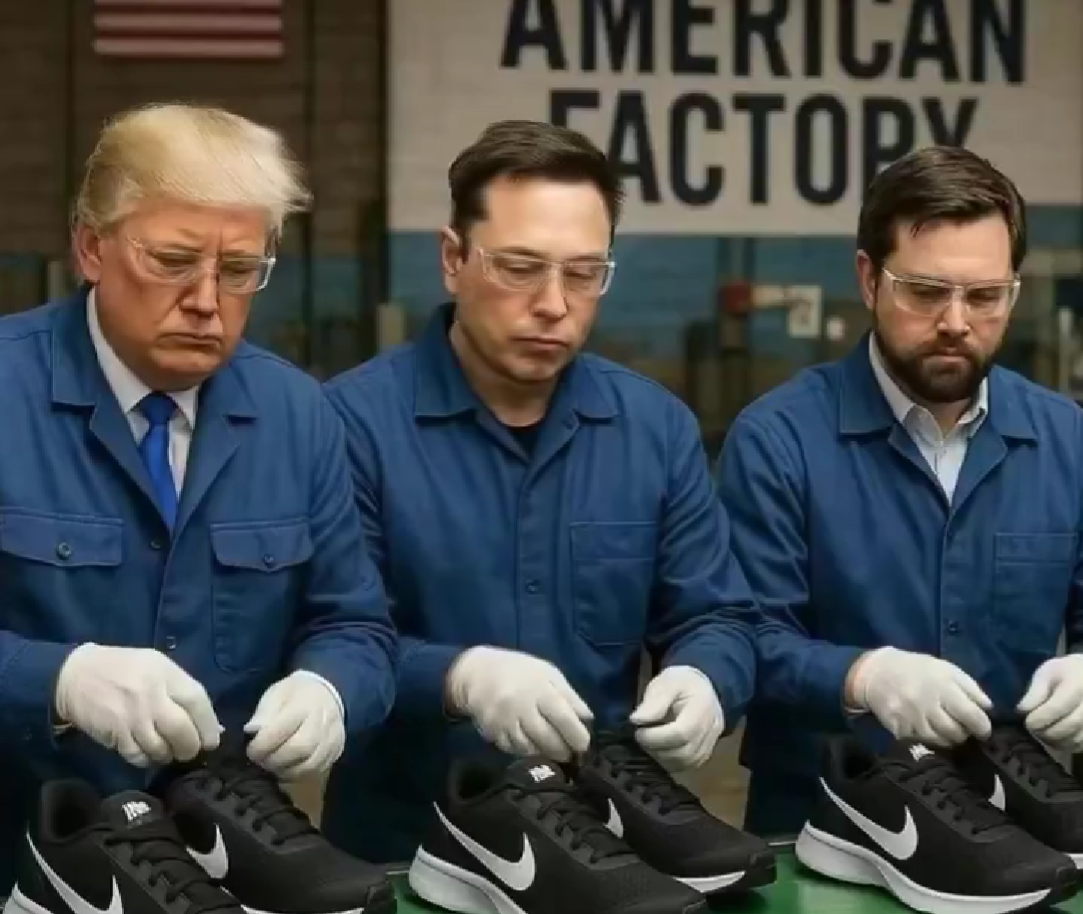
Musk vs. Trump. Trump’s tariffs accelerate the collapse of Tesla owner’s business
Donald Trump’s closest associate, the world’s richest man Elon Musk, has publicly condemned the 47th US president’s tariff policy and vented his anger on the policy’s creator, Trump’s trade adviser Peter Navarro. Musk called Navarro a “moron” who is “stupider than a sack of bricks”.
“Musk first lashed out at Navarro, apparently irritated by the onslaught of tariffs imposed by President Trump last week, in which Navarro played a key role,” writes The New York Post. Musk has a problem: sales of his Tesla electric cars fell 13% in the first quarter of 2025 to 336,681 units. This is the worst result since the third quarter of 2022, with market analysts expecting 360,000 to 390,000 units, according to Bloomberg. The reason for the decline in sales is dissatisfaction with Elon Musk in many countries around the world, especially in the European Union.
For example, in Germany, the share of Tesla electric cars fell from 16% to 4%. Even in China, where buyers are less sensitive to political scandals, Tesla sales in March fell by 11.5% year-on-year. The main factor is growing competition, primarily from BYD. Tesla shares fell by almost 6% on Wednesday in the pre-market market and have lost more than a third of their value since the beginning of the year. According to statistics from the European Automobile Manufacturers Association, the company sold just 9,900 cars in European countries in January, down 45% from the same period in 2024. The overall share of new electric car registrations fell to 1 percent from 1.8 percent in the same period. The Financial Times (FT) attributed this to Musk’s recent statements and moves in European politics.
Musk participated in a campaign event for the far-right Alternative for Germany party via video link on January 25. German magazine Der Spiegel reported that Musk confirmed his support for the AfD.
“Mr. Musk’s support for right-wing parties in Europe and his role as President Trump’s chief economist have not helped Tesla’s image. He has been at the center of protests in the United States and Europe, and his activities have put off some customers. In most countries, buyers of electric cars lean politically to the left,” The New York Times reported.
“I hate Musk, I hate Trump, I hate this whole company,” Kao Lew, a 75-year-old resident of Harlem, New York, who has been protesting outside Tesla’s Manhattan store for a week, told the NYT. The European left’s rejection of Musk’s corporate social Darwinism has also played a negative role.
In Sweden, Folksam, the country’s largest insurer, said it was selling its stake in the American automaker because Tesla’s approach to employee rights violated the company’s investment criteria. Folksam has invested in Tesla since 2013 and its stake was worth $160 million. Mechanics from the IF Metall union have been on strike in Sweden for more than a year over Tesla’s refusal to sign a collective bargaining agreement.
“Many Norwegians feel not only anger but also shame for supporting a company they say is breaking its promise to improve personal transportation for the planet and whose CEO has, they say, strayed from the principles of democracy. Rebil, Norway’s largest used car dealer, has seen a surge in drivers selling their Teslas in recent months,” the NYT writes.
Trump’s imposition of prohibitive import tariffs on April 2 has dealt Musk’s business an even bigger blow. “Elon Musk’s net worth has fallen below $300 billion after Tesla’s stock price plunged, triggered by President Trump’s recent tariffs on imported goods and foreign cars,” The Times Of India writes. Wedbush Securities analyst Dan Ives cut his price target for the company by more than 40%, citing “the perfect storm created by President Trump’s auto tariffs and Elon Musk’s deteriorating reputation.” Tesla shares are down nearly 40% year-to-date and 55% from their record high in December 2024.
“The more Musk is associated with the Trump administration, the more the damage to the [Tesla] brand turns from temporary to permanent,” Ives said. “Tesla has become a political symbol around the world, and that’s not good [for the company].”
“President Donald Trump’s decision to unilaterally launch a global trade war may be one of the worst economic blunders in American history. The administration has imposed tariffs on a scale that would have been unimaginable just a short time ago. The rest of the world is now subject to tariffs ranging from 10 to 50 percent, in many cases on top of existing tariffs. All of this is happening without much favoritism toward countries that are allies or whose exports are critical to supporting the U.S. economy. Trump’s trade war will cost American families dearly through higher consumer prices. It has already eroded their savings in the stock market. And it will certainly fail to deliver on one of Trump’s promises: to bring back jobs,” wrote analysts at the liberal Center for American Progress, which actively supports the U.S. Democratic Party. The political overtones of the liberal experts’ statement are obvious, but the fall in the U.S. stock market after Trump declared a trade war on the world is also evident.
On April 21, Donald Trump approved an increase in import tariffs on products from 185 countries. The base rate was 10%, but for several countries, including Washington’s closest allies, it turned out that the tariffs would be approximately 30-55%. Then the US stock market began a long-term decline. During trading on Monday, April 7, the S&P 500 index fell by 4.71%, the Nasdaq by 5.15%, the Dow Jones by 4.44%. Other major world stock exchanges showed similar dynamics. The MSCI Asia Pacific index fell by 8.5%, Hong Kong’s Hang Seng by more than 13%, Japan’s Topix and Nikkei by 7.8%. The Amsterdam Stock Exchange fell by 5.5%, the Stockholm and Copenhagen stock exchanges by almost 7%. The negative impact of Trump’s tariffs on imports will be long-term. The Yale University Budget Lab predicts that Trump’s new tariffs will raise U.S. prices by just 2.3% in the short term, representing an average consumer loss of $3,800 per household. The poorest households will be hit hardest, facing a 2.5 times greater reduction in disposable income than wealthier American families.
JPMorgan Chief Economist Michael Feroli called Trump’s new tariffs “the largest tax increase” since the 1968 Revenue Control Act, which imposed an additional 10% tax on personal and corporate income in an effort to curb inflation and reduce budget deficits during the Vietnam War. JPMorgan Chief Economist Bruce Kasman said in a research note to clients that the probability of a U.S. recession this year has risen from 40% to 60% since Trump imposed the sweeping tariffs. Musk is not the only victim of Trump’s tariffs. Among the richest Americans, Mark Zuckerberg suffered the biggest losses. His fortune fell by $17.9 billion on April 3. Jeff Bezos lost $16 billion, Nvidia CEO Juan Jensen lost $7.4 billion, and Google co-founders Larry Page and Sergey Brin lost $4.9 billion and $4.6 billion, respectively.
All of these super-rich are silent, but a man from Trump’s inner circle, Elon Musk, has spoken out on their behalf, questioning Trump’s entire foreign trade strategy in the person of Peter Navarro. It is clear that Musk himself, who happily pleaded at Trump’s inauguration, is to blame for many of their problems. This has weakened Musk’s reputation in the eyes of millions of people around the world. However, the objective economic reality that has emerged since Trump imposed prohibitive import tariffs is affecting not only Musk and his fellow big businessmen, but also the poorest American families. Elon Musk, the most dynamic member of the tech mogul class, has actually raised his voice against Trump’s entire economic strategy. The division in the West, which is deepening every day, has already penetrated even the most loyal associates of the 47th president of the United States.


Erik Simon


















